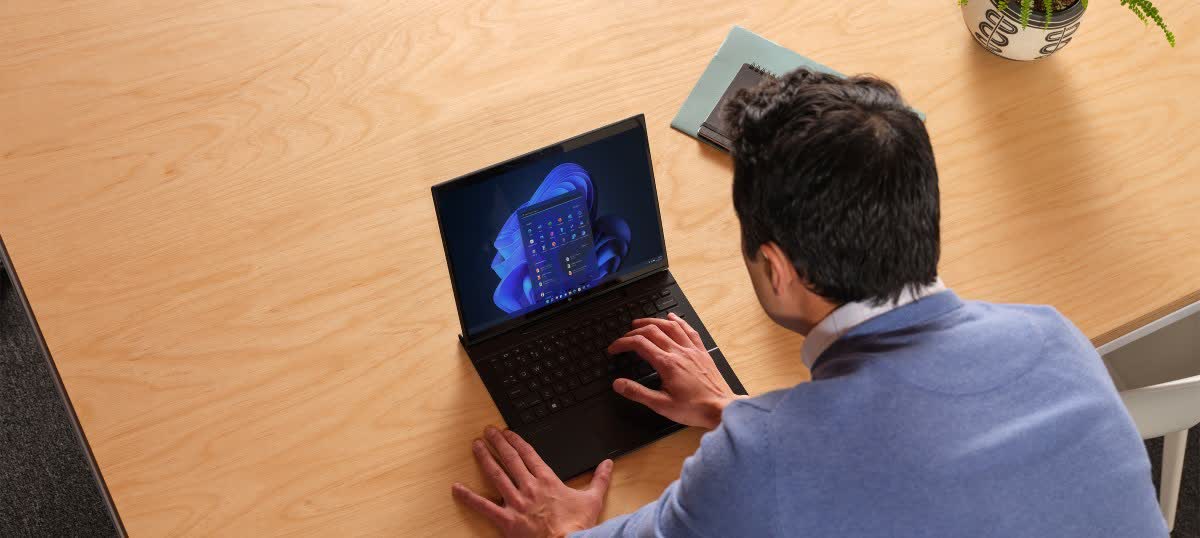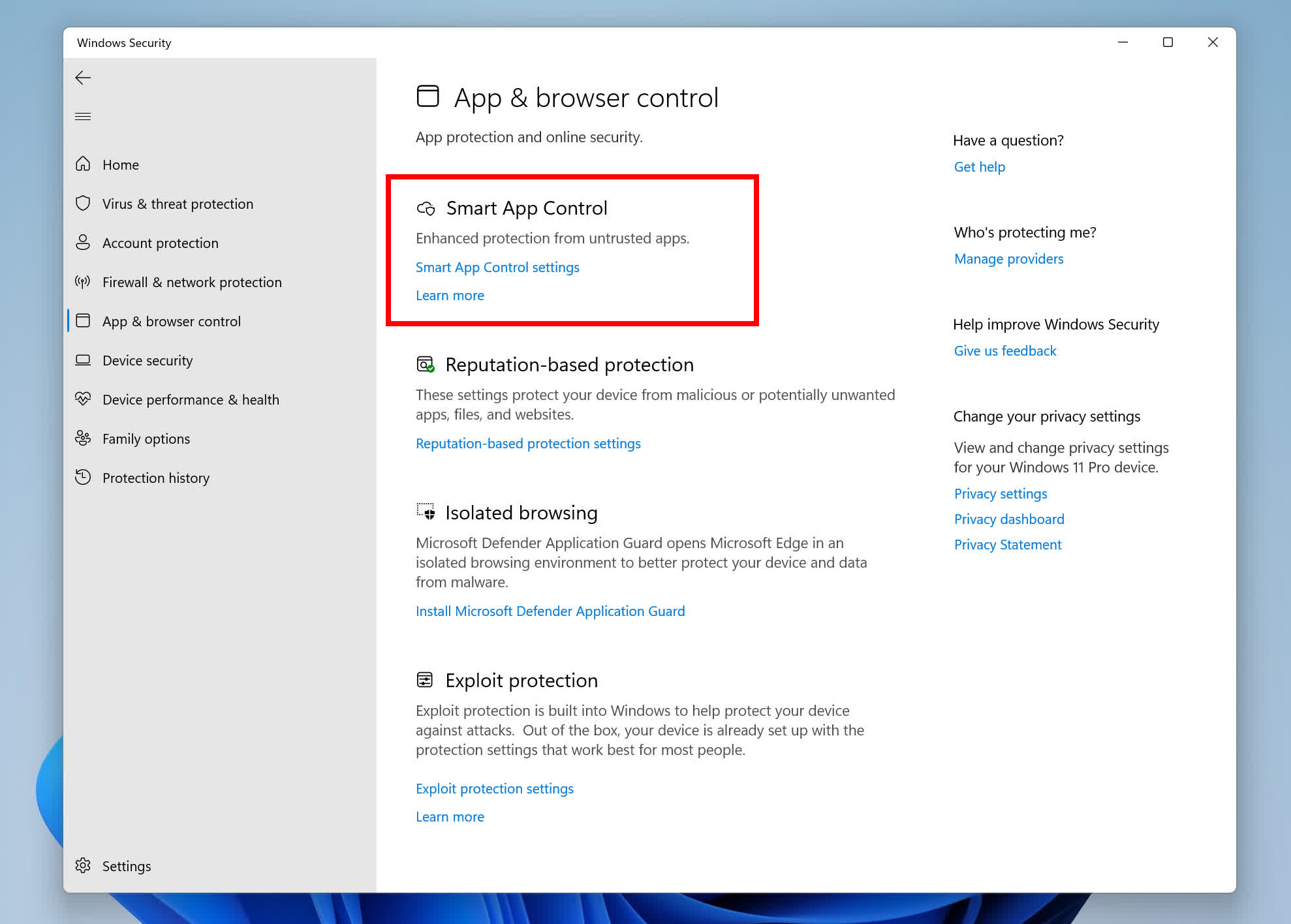In brief: Microsoft recently unveiled a new security feature for Windows Insiders called Smart App Control. It uses cloud-based AI to block untrusted programs. However, it's in an early state with demanding requirements for anyone willing to try it out.

When enabled, Smart App Control uses AI and Microsoft's cloud knowledge base to check every app that runs, blocking anything unsigned, unfamiliar, or known to be malicious. There is no whitelist, so blocked apps will only get through if their developers sign them.

Not all Windows Insiders can currently activate Smart App Control. Users running Windows 11 insider build 22567 or later can find the feature in Windows Security under App & Browser Control, where it is disabled by default. However, enabling it requires a fresh Windows install, so those who received the new insider build through Windows Update will have to reinstall or reset Windows to use it.
Even turning on Smart App Control only puts it into an inactive evaluation mode. During this, Windows will try to see if you regularly use too many programs that Smart App Control would flag. If so, it will remain inactive, although users can manually activate it.
Insider build 22567 is the same version that added the ability for Windows to schedule updates for periods when the local energy grid pulls more from renewables. It also introduced Android phone linking and QOL tweaks for subscription management.
https://www.techspot.com/news/94088-new-windows-11-security-feature-requires-clean-install.html